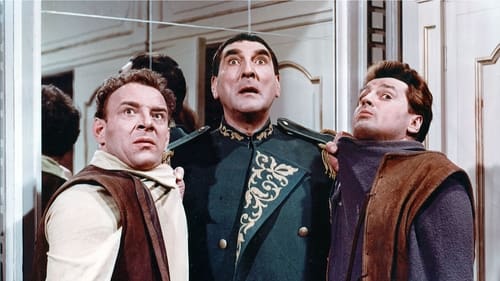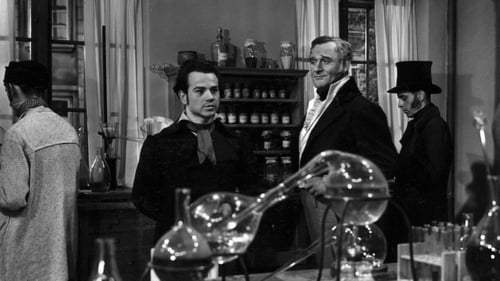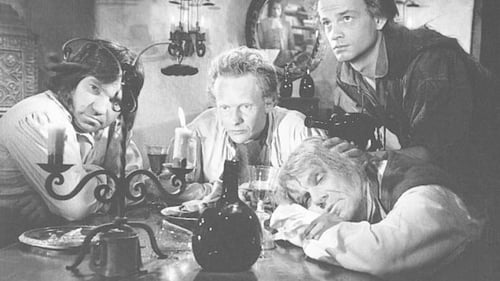
Hilkes Vater
Manfred and Hilke live a live perfectly complied with each other in West Berlin. They managed to elude from the bourgeois conformity, which they loath. But when Hilke finds out about her pregnancy she estranges from her partner. Trying to keep her former life as it was, she desperately looks all over the city to get an abortion.

Wilhelm

Schnapsnase
Poor weavers Hans (Horst Drinda) und Kumpan (Werner Lierck) try to enter a town surrounded by a tall, impenetrable wall, where everyone is apparently very happy. When they finally make it inside, the tyrannical Emperor Max demands they make him new clothes that would "bring all creatures to their knees." Hans and Kumpan claim only intelligent people can see the robe, and in order to prove himself clever, the emperor haughtily displays himself before his subjects wearing his new invisible regalia.

During the Thirty Years' War, the camp-follower Anna Fierling, called "Mother Courage", travels the length and breadth of Europe with her covered wagon. She does not care if it's Catholics or Protestants she trades with as long as business thrives. She loses her three children as a result of the war: bold and spirited Eilif, sincere and upright Swiss Cheese and mute Katrin, who saves the children of Halle by beating a drum on a farmstead roof In wartime, the Fierling children's virtues prove to be deadly. Yet, Mother Courage, remains incorrigible. She will not have anyone "spoil the war" for her and so sets out once more after the soldiers with her wagon.

Otto Funke

Fritz Krüger

Riemer
Railway employee Fritz Marr is not regarded well by his superiors. It is the year 1920, and trains regularly pass the railway hub of Erfurt to the East to secretly transport weapons for the fight against the young Soviet Union. Marr knows about this and wants to mobilise other workers to stop these illegal deliveries. To muzzle him, Marr is relocated to a remote rail work construction site.

Pfarrer

Friedrich

The story of Johann Friedrich Böttger, an apothecary’s apprentice and alchemist’s assistant. Fleeing from the Prussian King, he goes to Saxony, where King Frederick August the Strong takes him to a fortress and demands that he create gold. Böttger is equipped with everything he would need for the task, but he has known for a while that actual gold production is a myth and instead experiments with porcelain—white porcelain, as the Chinese are said to possess. In 1709, he finally succeeds in surprising the King with the "white gold," the first white porcelain made in Europe, he hopes for freedom.




